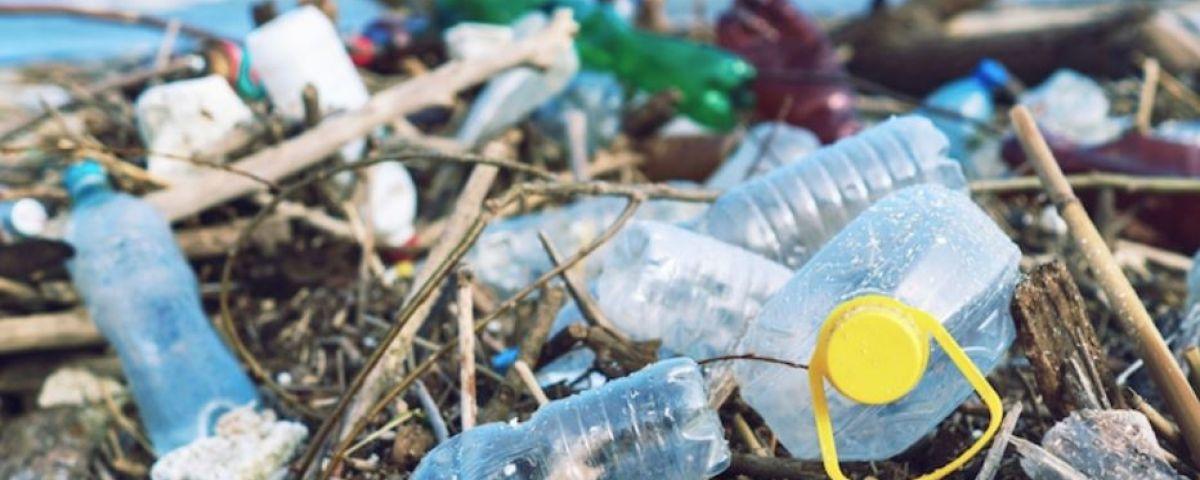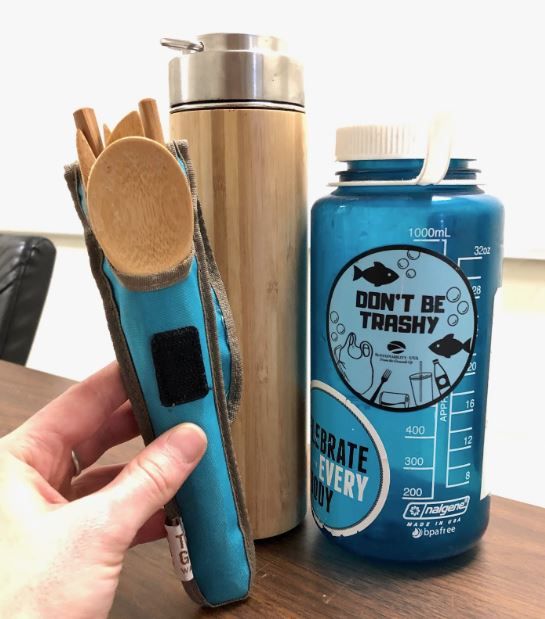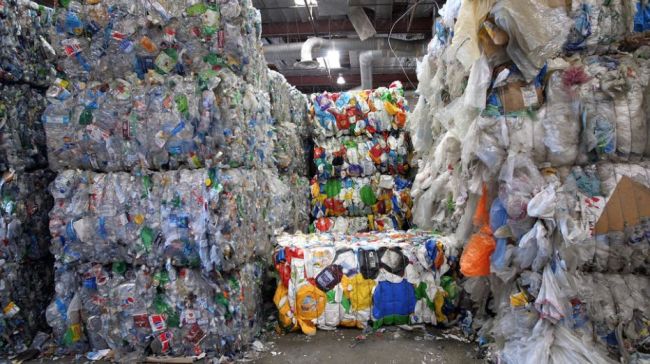
Plastic is wonderful but here's how we can reduce our usage!
Plastic is wonderful.
Yes. I just said that in a sustainability blog. Plastic is amazing. There, I said it again.
What I really mean by these seemingly treasonous words is that plastic is a wonder of modern science, enabling so many good things in our societies. Medical devices, clean energy components like wind turbine blades and certain solar panel components, and other products that would not be possible without the material's easily-moldable nature.
The only issue is, plastic is cheap, and it's everywhere. We as humans grossly misuse plastic for convenience, outside of its true application as a lightweight material meant to make up complex shapes of reusable objects. According to the UN environmental report on single use plastics, "plastic packaging accounts for nearly half of all plastic waste globally, and much of it is thrown away within just a few minutes of its first use." Plastic fills our streams and our oceans, and even the stomachs of many animals around the world as they mistake the small sun-degraded bits for food. We are utterly overwhelmed by our own production and consumption of plastic. According to the same environmental report, only 9% of plastic around the world that has ever been produced has been recycled. This means that 91% has ended up in landfills, dumps, streams, oceans, and other places where it is left to sit unutilized, or worse, unwelcome in the earth's ecosystems.
I am sick and tired of feeling as if I cannot avoid hurting the environment by purchasing such products, much of the time for very good reasons, such as needing to eat or hydrate. I have come to realize, though, that single-use plastic is an addiction of convenience. For this reason, I am resolving to break my own dependence in 2019 and hopefully, live majorly plastic-free (or at least largely reduce my consumption).
From personal experience (I am from Austin, Texas where there is currently a plastic bag ban), I can tell you that living without plastic bags gets really normal, really fast. It feels incredibly weird when I am given plastic bags at the store, as I see them as being so unnecessary now (and of course bring my own reusables). I have come to realize though, that my plastic consumption extends far beyond my use of plastic grocery bags.
To bring my attention to how much disposable plastic I use, I am going to go cold-turkey on my single-use plastic waste, allowing only one piece of single-use plastic per day for the first two weeks. I hope that after the first month I am able to figure out where my greatest plastic pitfalls are and have figured out ways to work around them.
As any new-years resolution needs a game plan, here is mine:
1. Invest in a good set of reusable silverware, a reusable mug/thermos, and quality tupperware. Thankfully I already have a good amount of quality to-go boxes that have been collected over some time, so those should suffice for food storage. Below is a picture of my set: a reusable utensil set, bamboo thermos, and Nalgene water bottle!
2. Purchase food from the grocery store somewhat as I normally would, taking care to avoid the obvious offenders such as bars and plastic bottles.
3. Save/document my disposable plastic items so that I can figure out where my biggest downfall is. For example, I have already figured out that about half of my plastic consumption comes from hummus containers. What can I say? I love the stuff.
4. Figure out ways that I can replace/alter my habits with ones that are just as satisfying, but without the plastic. For example, I used to throw an energy bar or two into my backpack every morning, without a thought as to where the wrapper would end up. I figured out that instead I can pack a small container of almond butter in my bag (enough to last for a couple of days) and throw a piece of fruit in my backpack in the morning, having a delicious snack ready for me whenever I get hungry.
5. Attempt to always have some sort of reusable bottle or container with me. I began leaving to-go boxes in my gar, as well as saving my takeout container lids so that I can bring one the next time I go to restaurants that offer take out.
6. Be forgiving with myself the times that I really do need to use plastic in order to eat or drink (although I hope that they are few), and try to find ways to reuse the plastic that I do have to purchase. I know that lasting change comes about gradually, and too much change too quickly could lead to my dropping the initiative entirely. Patience really is a virtue when it comes to changing your habits.
Having already tried this for a week, here have been my main experiences:
7. You will immediately notice how much plastic you use, especially if you limit yourself to one piece a day. It felt almost impossible at first, and I was questioning my resolution just as fast as I had made it. Before I knew it, though, living with less plastic got a whole lot easier as I was confronted with each of my habits and had to get creative in order to avoid the plastic.
8. Lowering your disposable plastic use will make you eat a much more wholesome diet, as well as cook more. It actually is incredibly empowering to be forced to make the foods that I normally purchased, because just in one week I already feel a lot more confident with my ability to cook! One of the main things that I missed were energy bars, and how easy they were to throw in my backpack on the way out of the door. So, I made my own! A simple internet search provided me with countless recipes for no-bake, protein-packed, delicious protein bars that even I could make. Plus, they taste better and are SO much less expensive than the store-bought kind. My favorite are these cinnamon roll protein bars from Sweat Peas and Saffron. Yum!
9. Traveling in airports is hard! Everything comes smothered in plastic. I ended up choosing made-to-order food, and that was wrapped in a plastic bag faster than I could blink. I returned the plastic bag to the rather confused Subway cashier, walked away, and giggled at the thought of how many more awkward encounters I was likely to have. In my opinion, the earth is worth it. For those times that you cannot avoid taking a bag, remember that you can recycle them at many grocery stores! Usually, there is a bin outside or somewhere near the front of the store for that purpose.
10. Investing in a good set of reusable silverware (mine are bamboo), reusable mug/thermos (also bamboo), and a good set of plastic storage containers is key.
11. Buying in bulk bypasses a lot of the plastic. Even if you have one large plastic bag around the food, at least you are not using lots of smaller ones that will ultimately contribute to more pollution.
12. Figuring out new ways to use things can be fun! One thing I've started doing is reusing twist ties that come on bread bags to suspend avocado seeds in water!
13. You will start to notice a lot more litter, and thank yourself for doing something to avoid creating such an environmental, and frankly ugly, problem.
14. Avoiding plastic becomes a whole lot easier really quickly as you adopt new habits that allow you to live just as happily as before, but without the harmful effects of the planet. If anything, it feels as if I am living a more wholesome and honest life. A win-win!
Here is another good article that I found that gives you even more interesting tips on going plastic free, like asking if you can have ice cream packed into your own container to keep the plastic-lined cartons from going into the trash.
Other Plastic-fighting Options
Although I strongly believe in the power of each individual to make change through his or her own behaviors, the issue of plastic is a big one. To properly address our plastic addiction, it is going to take the agreement of governments and policymakers across the U.S. The problem becomes even more complicated when you consider the economic side of the packaging industry, perfectly fit for our needs as Americans for convenience and low costs. Furthermore, what many people do not know is that the United States used to export 50% of its plastic scrap to China, who is, as of March 1, 2018, refusing to accept any more of such “traded” waste, and for good reason. Below is a picture of a warehouse of waste packaged and ready to be shipped off to China before the ban was enacted.
Though it may not always seem so, there is hope. Bans on single-use plastics have been successful in states such as California where coastal pollution has dropped significantly and in countries across the world such as Rwanda, now considered one of the cleanest nations on earth. According to the UN report mentioned above “The assessment shows that action can be painless and profitable – with huge gains for people and the planet that help avert the costly downstream costs of pollution. In addition, action will drive the kind of innovation that will underpin the future global economy we need.” Cutting out plastic is not likely to hurt the economy, but rather help it as it drives innovation and the production of more reusable materials.
What can you do? Speak up! If our gross misuse of plastic and its effect on the environment angers you, here are some things that you can do that affect the political climate right here in Virginia:
- Take action in the Wildlife Over Waste campaign lead by Environment Virginia through submitting an email to your governor, donating, or even volunteering!
- If you are from Fairfax County, participate in the bag-free campaign that began October 1, 2018.
- Join the #LitterFreeVA campaign by taking pictures of any liter that you see and posting it with the hashtag.
It is on us to change our ways because plastic is not the problem, it is what we do with it, and we each play a part.
For more information, to see how my progress on cutting out plastic is going, or to ask for advice on how to end your own plastic dependence, email us at [email protected].
References: UNEP (2018). SINGLE-USE PLASTICS: A Roadmap for Sustainability
-By Cydnie Golson, Office for Sustainability Student Employee


